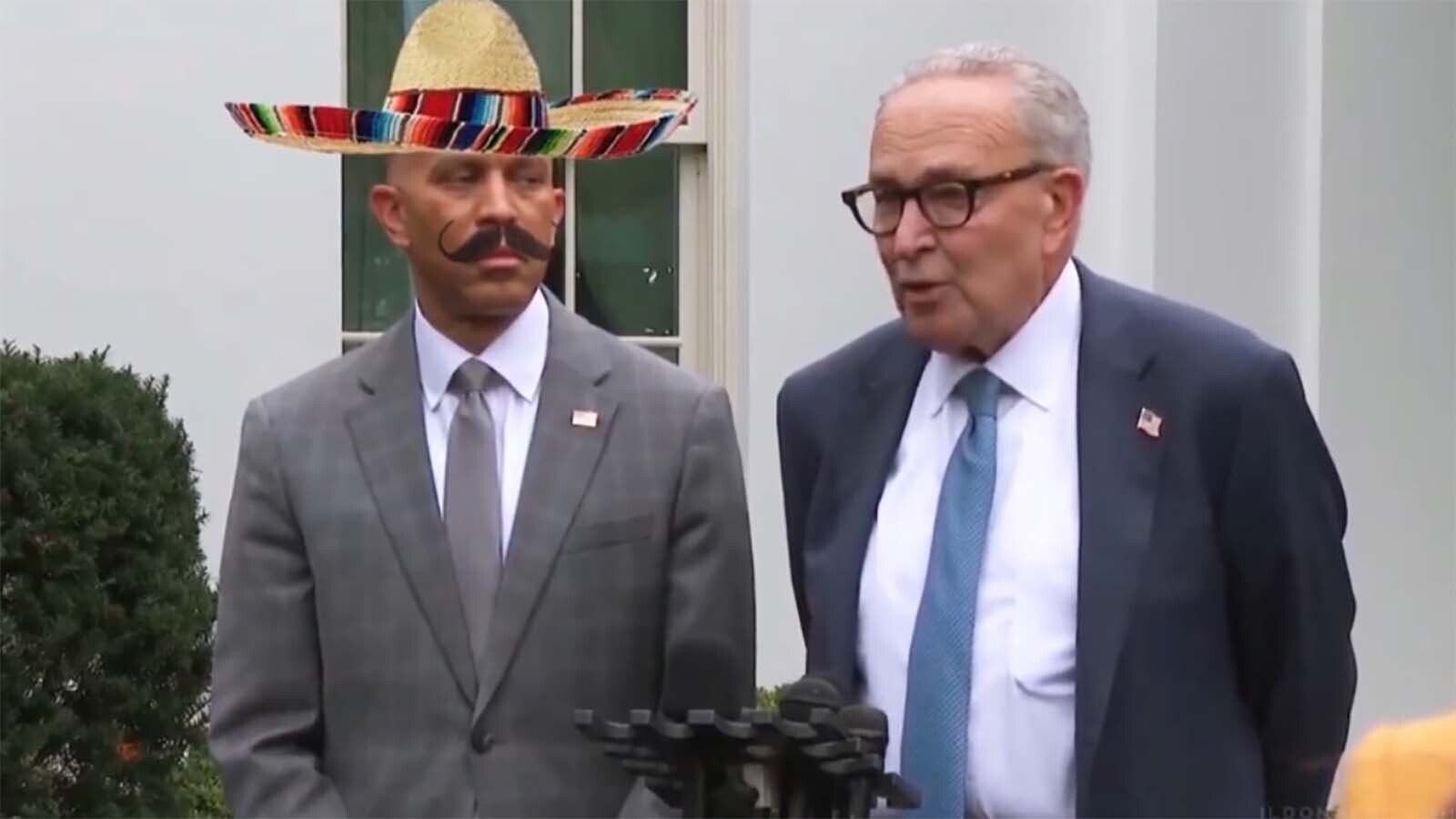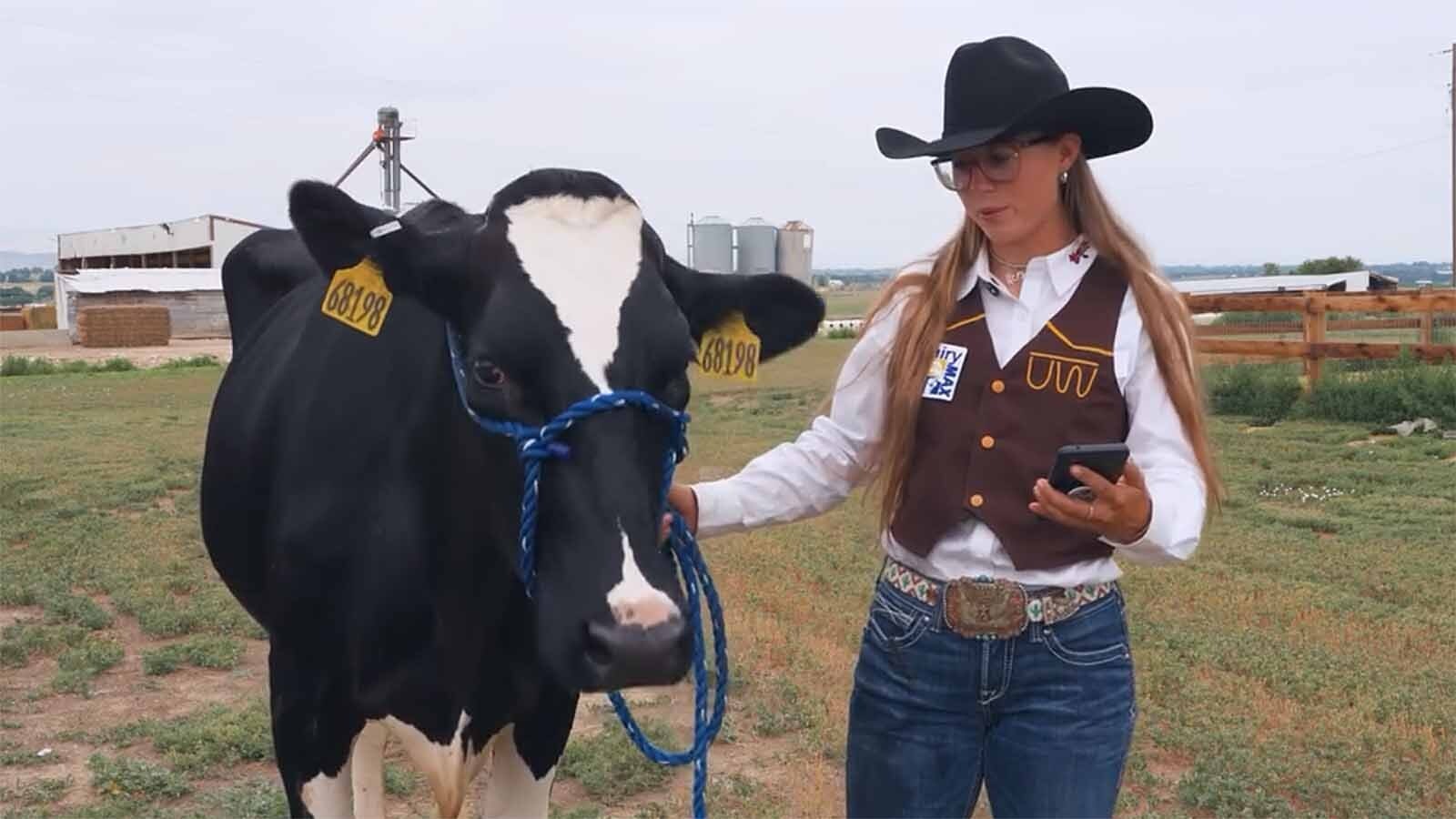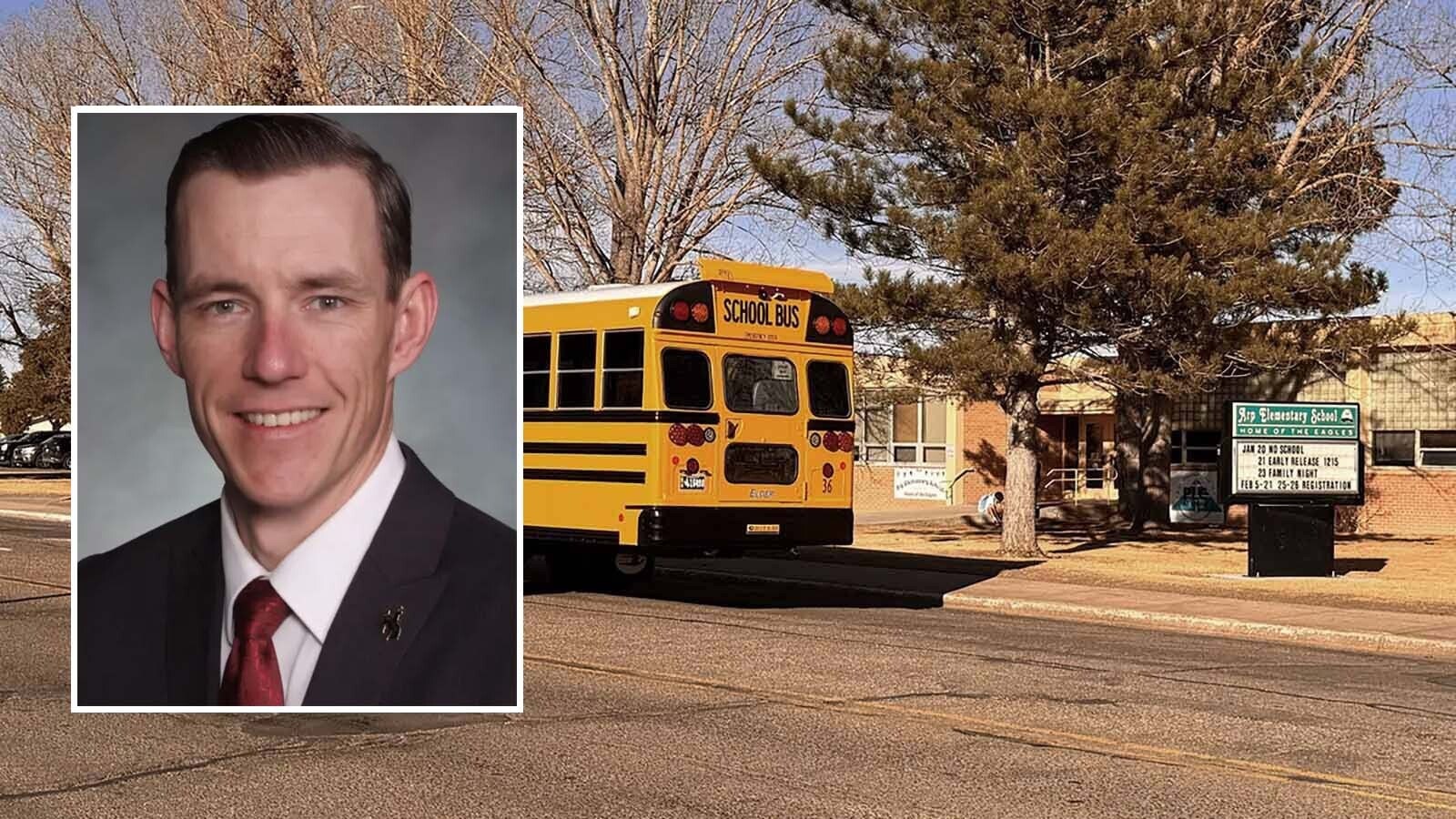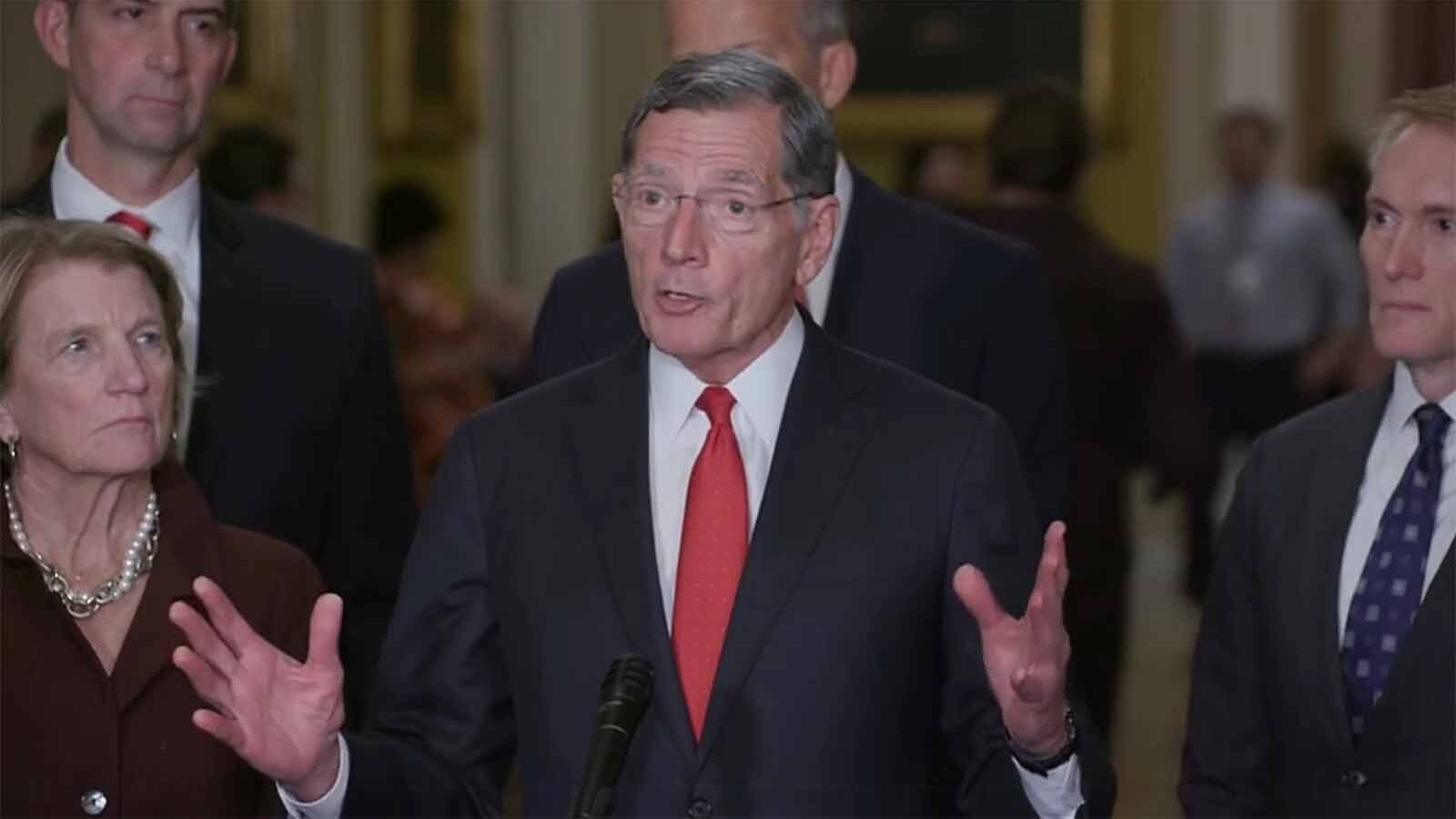President-elect Donald Trump wants to stop wind-farm construction under his administration, he told reporters Tuesday.
A Wyoming legislator who has long urged a cautious approach to wind-turbine construction says a pause on permitting isn’t a bad idea.
A clean-energy group consultant in the state says it is.
Trump riffed about “windmills” from Mar-a-Lago on Tuesday, calling the turbines economically unfeasible and harmful to wildlife, and the blades an environmental nightmare.
“We’re going to try to have a policy where no windmills are being built,” said Trump. “Nobody wants them. They’re very expensive. They don’t work without subsidy.”
Under the Inflation Reduction Act, corporations receive tax credits of 2.6 cents per kilowatt hour for wind-produced power.
“You don’t need energy that needs subsidy. Energy is a good business,” said Trump, who went on to criticize wind farms with defunct towers still standing; “rusting, rotting.”
“The windmills are driving the whales crazy, obviously,” Trump added.
Trump has attributed a recent sharp rise in whale deaths to wind turbines in the past as well. Numerous news agencies and scientific journals have disputed the claim.
However, the U.S. Bureau of Ocean Energy Management and the National Oceanic and Atmospheric Administration released plans last year to look for ways to mitigate potential adverse impacts of offshore wind projects on whale habitats.
Already Going Though
Wind projects in Wyoming are already underway, and it would be unrealistic at this point to try to stop them, Sophie Rockefeller, Energy Consultant of Jackson Hole Center for Global Affairs, told Cowboy State Daily.
“Trump is wildly unrealistic in stopping a movement that’s already underway,” Rockefeller said. “Many more projects are hoping to get permitted and put online in the coming years.”
Those projects are going to benefit the workforce in Wyoming’s windy regions and diversify the state’s economy as the combustible coal market declines, she said.
Rockefeller attributed wildfires now raging in California and other recent natural disasters to fossil fuel combustion and called Trump’s pivot from renewable energy sources “saddening.”
She took on some of his claims, saying “it’s a good point” that the turbines’ massive blades aren’t readily biodegradable, but she said companies are improving on ways to recycle their components.
Oil and gas industries damage wildlife as well, said Rockefeller, adding that wind turbines’ toll on animals isn’t “comparable.”
Though she touted wind energy as a major part of the future, Rockefeller said she’s not without sympathy for Wyoming coal miners, who have watched their industry decline this decade. She said she’s hopeful coal mining can still succeed in Wyoming.
This Aching Grid
Sen. Cale Case, R-Lander, has long pleaded with his fellow lawmakers to place state taxes on wind developers to slow down and compensate for the industry’s effects – such as the compromise of the state’s vast rolling skylines; the strain inconstant renewable producers place on the grid; and the heavy infrastructure each new wind farm brings.
Though the libertarian-leaning state lawmaker doesn’t always agree with Trump, he did so – generally – in his Wednesday interview with Cowboy State Daily.
Case said he doesn’t want to see an outright ban on wind. He’d like to see the government hold back from both bans and subsidies, and let the private market decide what kind of energy is best.
But a pause on new wind permits is a good idea right now, he added.
“We’ve overdone it with wind. I’m the first one to admit that, and that wind is not living up to its promises,” said Case. “We have an electricity grid that is very stressed, because we have intermittent resources on that grid: wind and solar.”
Wind and sunshine are both free, but the costs of installing wind and solar power, trying to store it, and trying to bolster the energy grid for its frequent failures are huge, the lawmaker said.
He attributed recent power rate increases from Rocky Mountain Power and others to those costs.
“(The industry hasn’t) accounted for the full cost of wind and renewable resources,” Case added.
He said wind farms also safeguard their own permanency by bringing so much expensive and difficult-to-reverse infrastructure to their regions.
“(Wind) always remains on top because of the costs you don’t want to do again,” he said. “Your grandchildren will be looking at those wind towers. Different ones, but the same site.”
Clair McFarland can be reached at clair@cowboystatedaily.com.





